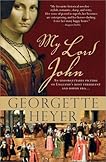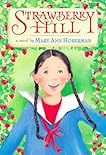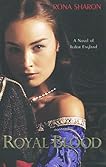 Another lovely reading experience, brought to you by Georgette Heyer. I think that this one is my favorite so far by her. It had all of the components of her other historical romances, but this one managed to pull them all off flawlessly. It is a slightly different story than seems typical for her books, but maybe that's why I liked it so much.
Another lovely reading experience, brought to you by Georgette Heyer. I think that this one is my favorite so far by her. It had all of the components of her other historical romances, but this one managed to pull them all off flawlessly. It is a slightly different story than seems typical for her books, but maybe that's why I liked it so much.The Duke of Sale, known as Gilly to most people (his full name and titles are amusingly very long), is an orphan, raised by his uncle until he reaches his majority at age 25. We meet him at 24, and see in him a man who has been so sheltered and cared for all of his life, that he practically cannot stand up for himself. He wants to speak for himself, and live his own life, but he knows that those responsible for his extreme disconnection from the world, his uncle and servants, only treat him so because they love him so much. And he does not have the heart to cause strife among his household. However, we see that this "mollycoddling" has begun to be simply too much for him, and he begins to show signs of breaking free. When his cousin finds himself in some trouble, Gilly volunteers to solve the problem. His first step? Tricking his servants and informing absolutely no one, not even his closest friend Gideon (another cousin), of his intentions, he sets out to have himself an adventure, to prove to himself whether he is "a man, or only a duke."
Gilly is a fantastic character, one whose strength the reader can see through all of the sheltering he has grown up with. The other male characters are equally well-drawn; I especially love Gideon, and his attitude towards Gilly, who he insists on calling Adolphus (his true first name). The two main female characters are also likeable, and Heyer does a terrific job of making us love the foundling Belinda, while being just as annoyed with her as the rest of the cast of characters most of the time. The romance in this book is more subtle than in the others, but I found it perhaps even more satisfying. Like I said, this is my favorite of the Heyer books I have read so far, and I would definitely recommend it to fans of historical fiction and romance.



















